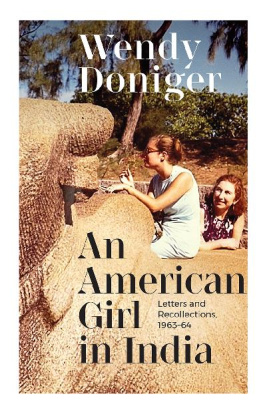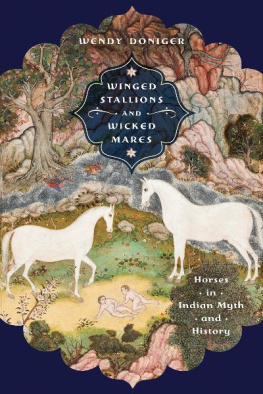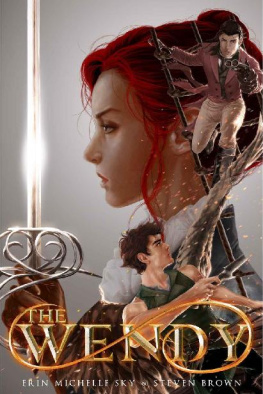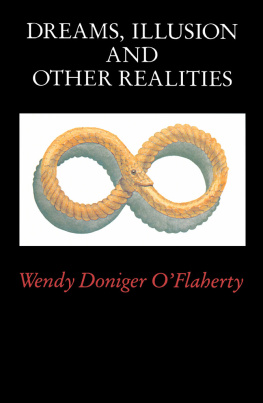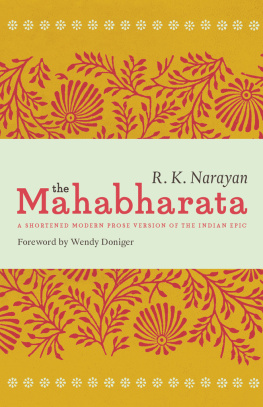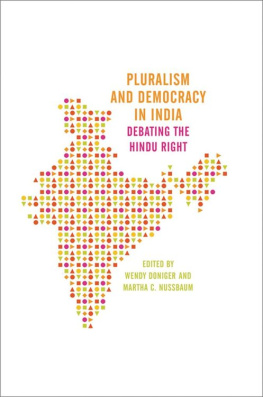Doniger Wendy - 2002;2003;
Here you can read online Doniger Wendy - 2002;2003; full text of the book (entire story) in english for free. Download pdf and epub, get meaning, cover and reviews about this ebook. City: India;Oxford, year: 2002;2003;2009, publisher: Oxford University Press, genre: Romance novel. Description of the work, (preface) as well as reviews are available. Best literature library LitArk.com created for fans of good reading and offers a wide selection of genres:
Romance novel
Science fiction
Adventure
Detective
Science
History
Home and family
Prose
Art
Politics
Computer
Non-fiction
Religion
Business
Children
Humor
Choose a favorite category and find really read worthwhile books. Enjoy immersion in the world of imagination, feel the emotions of the characters or learn something new for yourself, make an fascinating discovery.

- Book:2002;2003;
- Author:
- Publisher:Oxford University Press
- Genre:
- Year:2002;2003;2009
- City:India;Oxford
- Rating:5 / 5
- Favourites:Add to favourites
- Your mark:
- 100
- 1
- 2
- 3
- 4
- 5
2002;2003;: summary, description and annotation
We offer to read an annotation, description, summary or preface (depends on what the author of the book "2002;2003;" wrote himself). If you haven't found the necessary information about the book — write in the comments, we will try to find it.
2002;2003; — read online for free the complete book (whole text) full work
Below is the text of the book, divided by pages. System saving the place of the last page read, allows you to conveniently read the book "2002;2003;" online for free, without having to search again every time where you left off. Put a bookmark, and you can go to the page where you finished reading at any time.
Font size:
Interval:
Bookmark:

Great Clarendon Street, Oxford OX2 6DP
Oxford University Press is a department of the University of Oxford.
It furthers the Universitys objective of excellence in research, scholarship,
and education by publishing worldwide in
Oxford New York
Auckland Bangkok Buenos Aires Cape Town Chennai
Dar es Salaam Delhi Hong Kong Istanbul Karachi Kolkata
Kuala Lumpur Madrid Melbourne Mexico City Mumbai Nairobi
So Paulo Shanghai Taipei Tokyo Toronto
Oxford is a registered trade mark of Oxford University Press
in the UK and in certain other countries
Published in the United States
by Oxford University Press Inc., New York
Wendy Doniger and Sudhir Kakar 2002
The moral rights of the authors have been asserted
Database right Oxford University Press (maker)
First published as an Oxford Worlds Classics paperback 2003
Reissued 2009
All rights reserved. No part of this publication may be reproduced, stored in a retrieval system, or transmitted, in any form or by any means, without the prior permission in writing of Oxford University Press, or as expressly permitted by law, or under terms agreed with the appropriate reprographics rights organizations. Enquiries concerning reproduction outside the scope of the above should be sent to the Rights Department, Oxford University Press, at the address above
You must not circulate this book in any other binding or cover and you must impose this same condition on any acquirer
British Library Cataloguing in Publication Data
Data available
Library of Congress Cataloging in Publication Data
Data available
ISBN 9780199539161
Typeset in Ehrhardt
by RefineCatch Limited, Bungay, Suffolk
Printed in Great Britain by
Clays Ltd, St Ives plc
OXFORD WORLDS CLASSICS
For over 100 years Oxford Worlds Classics have brought readers closer to the worlds great literature. Now with over 700 titlesfrom the 4,000-year-old myths of Mesopotamia to the twentieth centurys greatest novelsthe series makes available lesser-known as well as celebrated writing.
The pocket-sized hardbacks of the early years contained introductions by Virginia Woolf, T. S. Eliot, Graham Greene, and other literary figures which enriched the experience of reading.
Today the series is recognized for its fine scholarship and reliability in texts that span world literature, drama and poetry, religion, philosophy and politics. Each edition includes perceptive commentary and essential background information to meet the changing needs of readers.
Refer to the to navigate through the material in this Oxford Worlds Classics ebook. Use the asterisks (*) throughout the text to access the hyperlinked Explanatory Notes.
OXFORD WORLDS CLASSICS

VATSYAYANA MALLANAGA
A new, complete English translation of the
Sanskrit text
with excerpts from the
Sanskrit Jayamangala commentary of
Yashodhara Indrapada,
the Hindi Jaya commentary of
Devadatta Shastri,
and explanatory notes by the translators

Translated and edited by
WENDY DONIGER and SUDHIR KAKAR

OXFORD WORLDS CLASSICS
THE Kamasutra is the oldest extant Hindu textbook of erotic love. It was composed in Sanskrit, the literary language of ancient India, probably in North India and probably sometime in the third century of the common era, most likely in its second half, at the dawn of the Gupta Empire. Virtually nothing is known about the author, Vatsyayana Mallanaga, other than his name and what we learn from this text.
WENDY DONIGER (OFLAHERTY) is the Mircea Eliade Distinguished Service Professor of the History of Religions at the University of Chicago, and the author of translations of Sanskrit texts, including the Rig Veda (1981) and the Laws of Manu (1991), as well as books about IndiaSplitting the Difference: Gender and Myth in Ancient Greece and India (1988)about mythOther Peoples Myths: The Cave of Echoes (1984)and about sexSiva: The Erotic Ascetic (1973) and The Bedtrick: Tales of Sex and Masquerade (2000).
SUDHIR KAKAR is a psychoanalyst and currently a Senior Fellow at the Center for the Study of World Religions at Harvard University. He is the author of many books on India that cover a wide spectrum from Hindu childhood to Indias healing traditions, from male-female relations to Hindu-Muslim violence, from classical love tales to modern mysticism. His most recent books are The Ascetic of Desire (1999), a fictionalized account of the life of Vatsyayana, the author of the Kamasutra, and the the novel Ecstasy (2001).
For Katha and Kali
with excerpts from Yashodharas commentary, the Jayamangala
The Kamasutra is the oldest extant Hindu textbook of erotic love. It is not, as most people think, a book about the positions in sexual intercourse. It is a book about the art of livingabout finding a partner, maintaining power in a marriage, committing adultery, living as or with a courtesan, using drugsand also about the positions in sexual intercourse. The two words in its title mean desire/love/pleasure/sex (kama) and a treatise (sutra).
Virtually nothing is known about the author, Vatsyayana Mallanaga, other than his name and what we learn from this text; and all that he tells us is that he composed it in chastity and in the highest meditation [7.2.57], about which we may conclude, as he himself remarks about someone elses claim of virtue [5.4.15], that it may or may not have happened. But Vatsyayana tells us something important about his text, namely, that it is a distillation of the works of a number of authors who preceded him, authors whose texts have not come down to us: Auddalaki, Babhravya, Charayana, Dattaka, Ghotakamukha, Gonardiya, Gonikaputra, and Suvarnanabha. These other authors, called teachers or scholars, supply what Indian logic called the other side (literally, the former wing, purvapaksha), the arguments that opponents might raise. In this case, they are former in both the logical and chronological sense of the word; Vatsyayana cites them often, sometimes in agreement, sometimes in disagreement. Always his own voice comes through, as he acts as ringmaster over the many acts that he incorporates in his sexual circus. The Kamasutra was therefore certainly not the first of its genre, nor was it the last. The many textbooks of eroticism that follow it, such as Kokkakas Ratirahasya (also called the Kokashastra, pre-thirteenth century) and Kalyanamallas Anangaranga (fifteenth century), cite it as a foundational authority. The Nagarasarvasva of Bhikshu Padamashri and the Panchasayaka of Jyotirishvara (eleventh to thirteenth century) explicitly base themselves on the Kamasutra, the first on Books Two, Five, and Seven, and the second on Books Two, Three, Five, and Seven. The Kamasutra also made a deep impact on Indian literature; its vocabulary and taxonomies were diffused into later Sanskrit erotic poetry.
Next pageFont size:
Interval:
Bookmark:
Similar books «2002;2003;»
Look at similar books to 2002;2003;. We have selected literature similar in name and meaning in the hope of providing readers with more options to find new, interesting, not yet read works.
Discussion, reviews of the book 2002;2003; and just readers' own opinions. Leave your comments, write what you think about the work, its meaning or the main characters. Specify what exactly you liked and what you didn't like, and why you think so.

